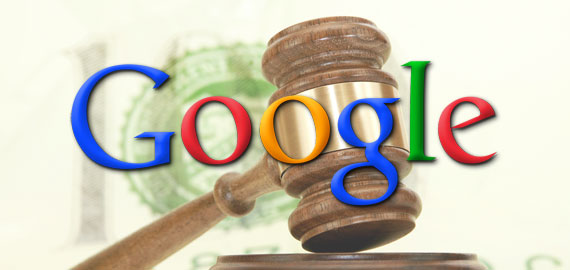Report: Google Seeks To Avoid EU’s Antitrust Wrath By “Labeling” Its Own Services
The Financial Times (FT) is reporting that the thrust of Google’s antitrust settlement proposal to European Competition Czar Joaquín Almunia primarily involves “labeling” its own services to distinguish them from other organic search results. According to the FT, citing “people familiar with the search giant’s submission”: Under the proposal, Google would put its brand on any […]
 The Financial Times (FT) is reporting that the thrust of Google’s antitrust settlement proposal to European Competition Czar Joaquín Almunia primarily involves “labeling” its own services to distinguish them from other organic search results. According to the FT, citing “people familiar with the search giant’s submission”:
The Financial Times (FT) is reporting that the thrust of Google’s antitrust settlement proposal to European Competition Czar Joaquín Almunia primarily involves “labeling” its own services to distinguish them from other organic search results. According to the FT, citing “people familiar with the search giant’s submission”:
Under the proposal, Google would put its brand on any of its own maps, stock quotes, airline flight details or other pieces of information returned with search results. It is an attempt to resolve regulators’ fears that Google is unfairly squeezing out other specialist information services on the web.
However FairSearch.org preemptively came out with an argument against such an approach a few weeks ago:
The remedy to restore competition must be meaningful and enforceable. Simply requiring Google to accurately label its products, paid search results and advertisements will not undo the harm to competition that Google already has inflicted.
A limited “remedy” will not prevent Google from continuing its other exclusionary conduct, such as preferencing its own services or demoting the rankings of competitive sites. Rather, it would enable Google to retain the fruits of its unlawful conduct and would preserve Google’s dominance. In the end, placement matters far more than labeling.
Emphasis added.
A “labeling solution” would probably look very much like what already exists in the case of many Google “vertical” results:
As indicated by the FairSearch position statement, regardless of whether the label says “sponsored” or “Google results” or something else, critics are unlikely to be satisfied because they’re more concerned with ranking on the page. And such an approach is also unlikely to have any impact on ranking or consumer behavior whatsoever.
Commissioner Almunia is thus likely to push for something beyond pure labeling. It’s unclear what that remedy would be, however.
There are other areas of antitrust “concern” for the EU, most of which are easier to resolve than the issue of “Google ranking its own content” above those of competitor sites. Yet there are many experts and legal scholars who believe that Google has no obligation to particular competitors in the market and that its search results rankings should be under its sole discretion.
An alternative to labeling might be to (somehow) subject Google’s own “vertical” properties to the same rules and algorithm as third party sites. This is not entirely unprecedented. Earlier this year Google demoted its own page promoting the Chrome browser after the page/site violated Google’s own webmaster guidelines.
Indeed there are a number of situations in which Google punished its own sites for violating Google’s own rules. For example, Google demoted all of Google Japan for almost a year for link buying. It also banned AdWords help pages for cloaking. There are more examples as well.
Commissioner Almunia is walking something of a tightrope in this case. He would prefer not to have to formally take action against Google, which will cost money and time and potentially result in a Google victory — or perhaps a only a pyrrhic victory for him. Either scenario would be an embarrassment. However if a settlement deal is perceived as too lenient, he will face numerous and vocal European critics who believe that Google is a monopoly and must be restrained.
A great deal is riding on the terms of any settlement because it would likely influence the approach of the US Federal Trade Commission, which has said it will wrap up its investigation and make a determination about any action against Google by the end of the year.
Contributing authors are invited to create content for Search Engine Land and are chosen for their expertise and contribution to the search community. Our contributors work under the oversight of the editorial staff and contributions are checked for quality and relevance to our readers. The opinions they express are their own.
Related stories
